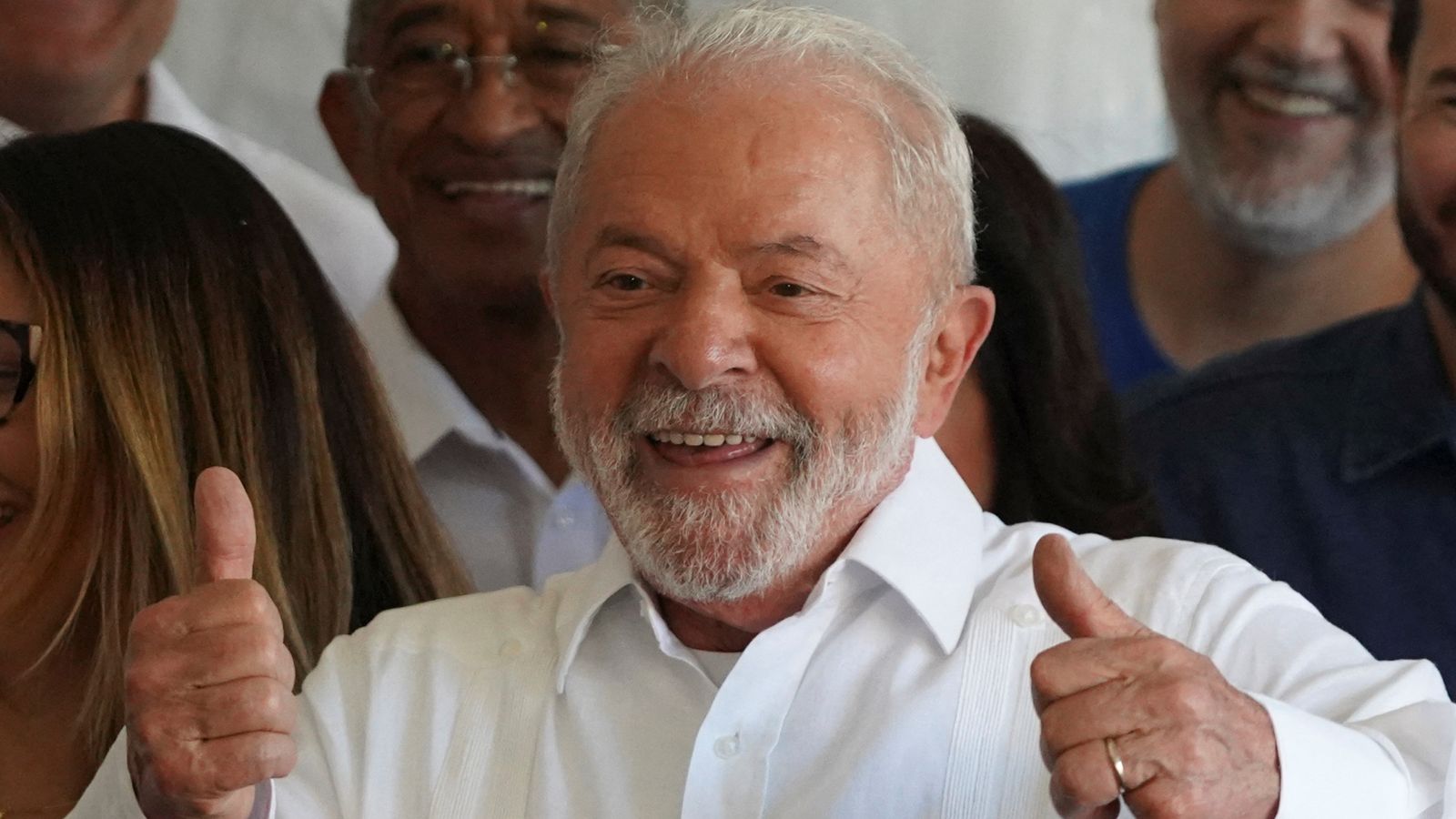The wave of emotion and unbridled happiness that greeted Lula da Silva in the Paulista Avenue in downtown Sao Paulo, filled with tens of thousands of supporters, was a palpable sign that Brazil will change its political course.
But the new president takes over a country in January next year that is beset with problems that he may well struggle to overcome.
Lula da Silva, known universally as just Lula, was born into poverty. A former shoeshine boy, factory worker and later a trade union official, he slowly climbed the political ladder, three times failing to win the presidency before finally achieving his goal in 2002.
He retired in 2011 with 80% approval ratings, but a series of scandals led to his imprisonment on corruption charges, later annulled, and now he has risen once again to the very top of Brazilian politics.
Lula’s “to do” list is very, very long.
Brazil is terribly divided politically and socially. Nearly half the country did not vote for him and despite Mr da Silva securing the presidency, many of Jair Bolsonaro’s supporters fill senior municipal positions around the country and control Congress. That will make major changes to government strategy difficult to achieve with ease.
Perhaps his most pressing problem will be addressing the disparity of wealth in the country.
Lula da Silva’s triumph results in mayhem and elation on the streets of Sao Paulo – but uniting Brazil will be hard
From prisoner to poll winner: The world reacts to comeback of Lula, Brazil’s new president – as conservationists hold their breath
Lula da Silva narrowly beats Jair Bolsonaro to win Brazil election
It is estimated 100 million people live in poverty, while more than 30 million Brazilians face acute hunger.
Mirroring his pledges and policies from the early 2000s, Mr da Silva is promising to end poverty, increase education, improve health provision and housing, while vowing to oversee the start of a huge infrastructure rebuild.
How all this will get paid for has not been explained or costed in any detailed way.
The economic conditions of his first years in office are completely different now.
The commodities boom that allowed him to direct funding to huge societal projects doesn’t exist any more.
Like many of the world’s largest economies, Brazil is already struggling with the current global economic crisis and the costs caused by the COVID pandemic, which killed more than 700,000 people here.
Under Mr Bolsonaro the Amazon rainforest was cast as a source of unending wealth with his belief that the exploitation of its enormous natural resources was in the national interest.
Please use Chrome browser for a more accessible video player
It meant that deforestation increased every year. As the trees were felled, loggers and ranchers moved in. Lula plans to stop all that.
But the agribusiness is huge and its support and funding of politicians who are cut from the same cloth as Mr Bolsonaro is well recognised, and they are still in office.
However, world leaders have been falling over themselves to congratulate Mr da Silva and the Amazon is one of the key issues to all of them.
Read more:
Lula da Silva’s triumph results in mayhem and elation on the streets of Sao Paulo
Joe Biden, Emmanuel Macron, Rishi Sunak and Vladimir Putin are just some of those who have been in touch with the new president.
Many know the man, once described by Barack Obama as “the most popular politician on earth”, and it seems they all like him, although it must be noted they are probably equally happy to see the back of Mr Bolsonaro.
Mr da Silva’s presidency will be very different in style and substance to that of his predecessor.
The days of anarchic, aggressive, decisive and chaotic government that characterised Mr Bolsonaro’s four years will end.
But this won’t be an easy time for the new president. The country is still divided and that didn’t change on one day in October.







